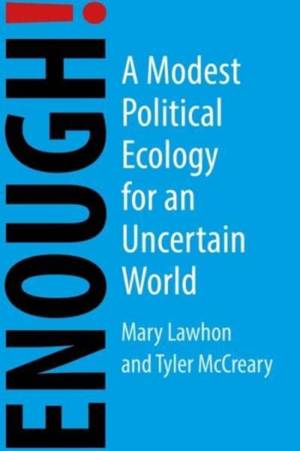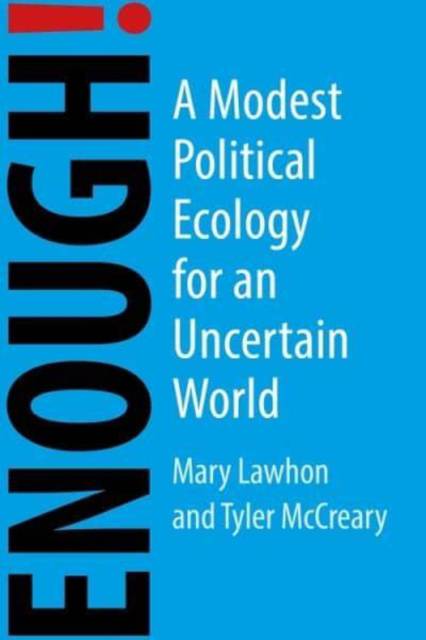
Door een staking bij bpost kan je online bestelling op dit moment iets langer onderweg zijn dan voorzien. Dringend iets nodig? Onze winkels ontvangen jou met open armen!
- Afhalen na 1 uur in een winkel met voorraad
- Gratis thuislevering in België vanaf € 30
- Ruim aanbod met 7 miljoen producten
Door een staking bij bpost kan je online bestelling op dit moment iets langer onderweg zijn dan voorzien. Dringend iets nodig? Onze winkels ontvangen jou met open armen!
- Afhalen na 1 uur in een winkel met voorraad
- Gratis thuislevering in België vanaf € 30
- Ruim aanbod met 7 miljoen producten
Zoeken
Enough!
A Modest Political Ecology for an Uncertain Future
Mary Lawhon, Tyler McCreary
Paperback | Engels
€ 40,95
+ 81 punten
Omschrijving
Enough! insists there is enough for all. Creating such a future is not about producing more or living with less. Instead, it starts with rethinking our politics, economics and approach to livelihoods. Mary Lawhon and Tyler McCreary develop a "modest approach" to justice and sustainability, drawing on ecology and postcolonial theory, as well as their research on infrastructure in African cities and the Canadian north. The authors chart a pathway beyond modernist and arcadian environmentalisms, emphasizing uncertainty while holding onto hope for creating better worlds. The chapters tack between conceptual contours, concrete examples, proposed inventions, and personal narrative. Theorizing from the struggles of the global south and Indigenous peoples, Enough! proposes delinking livelihoods from work through a redistributive basic income, which enables enough without overreliance on modern states. It also enables us to prevent conflicts over jobs, reduce some types of production, and deploy resources towards building postcapitalist worlds.
Specificaties
Betrokkenen
- Auteur(s):
- Uitgeverij:
Inhoud
- Aantal bladzijden:
- 188
- Taal:
- Engels
Eigenschappen
- Productcode (EAN):
- 9781788216203
- Verschijningsdatum:
- 5/09/2023
- Uitvoering:
- Paperback
- Formaat:
- Trade paperback (VS)
- Afmetingen:
- 155 mm x 234 mm
- Gewicht:
- 294 g

Alleen bij Standaard Boekhandel
+ 81 punten op je klantenkaart van Standaard Boekhandel
Beoordelingen
We publiceren alleen reviews die voldoen aan de voorwaarden voor reviews. Bekijk onze voorwaarden voor reviews.











